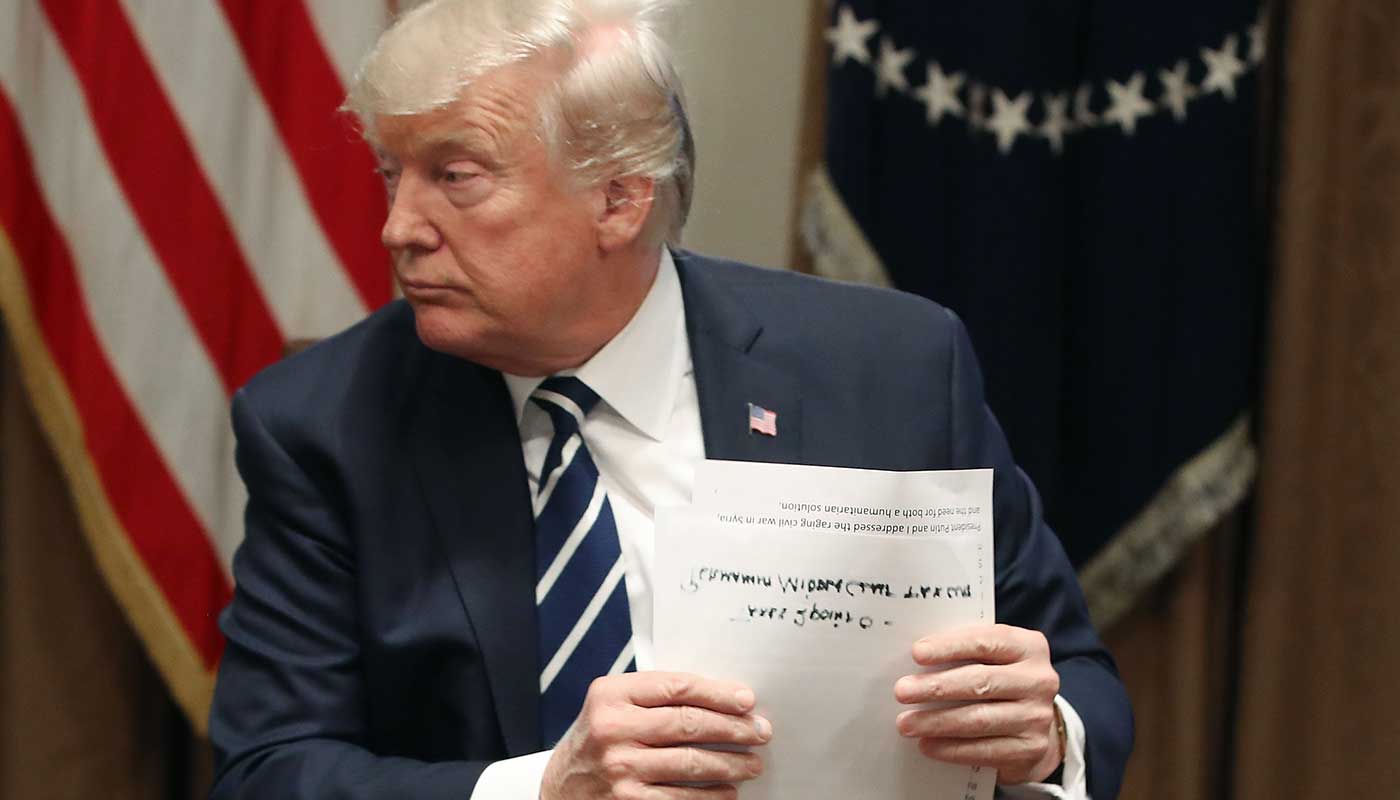Why Donald Trump is pursuing an ‘Arab Nato’
Alliance is a response to Iran’s growing influence in the Middle East

A free daily email with the biggest news stories of the day – and the best features from TheWeek.com
You are now subscribed
Your newsletter sign-up was successful
The Trump administration is attempting to set up a military alliance to counter the threat of Iran’s rising power in the Middle East.
Saudi Arabia and five other Gulf Arab states, in addition to Egypt and Jordan, are in talks to set up an alliance that would be “backed by the US and focus on defence and military training”, says The Times.
Iran is currently supporting Houthi rebels in Yemen in what has become a proxy conflict with Saudi Arabia, while the two countries also back opposing sides in Syria.
The Week
Escape your echo chamber. Get the facts behind the news, plus analysis from multiple perspectives.

Sign up for The Week's Free Newsletters
From our morning news briefing to a weekly Good News Newsletter, get the best of The Week delivered directly to your inbox.
From our morning news briefing to a weekly Good News Newsletter, get the best of The Week delivered directly to your inbox.
The plan to forge what officials in the White House and Middle East have called an “Arab Nato” of Sunni Muslim allies is likely to raise tensions between the US and Shi’ite Iran, “two countries increasingly at odds since President Donald Trump took office”, says Reuters.
According to the news agency’s sources, the White House wants to see deeper cooperation between the countries on missile defence, military training, counter-terrorism and other issues.
One practical option being discussed is for a regional missile shield similar to Israel’s Iron Dome system.
The idea had “originally been raised by Saudi Arabia, which proposed a security pact ahead of President Donald Trump’s visit to the kingdom in May last year”, says Gulf News.
A free daily email with the biggest news stories of the day – and the best features from TheWeek.com
Trump’s renewed determination to reduce Iranian influence has put the Riyadh proposals back on the table with “a new anti-Tehran flavour”, adds The Times.
The creation of this alliance will allow member states to “overlook differences and avoid being distracted by short-term goals”, says Gulf News.
One distraction that could stymie the plan is the 13-month long dispute pitting Saudi Arabia and the UAE against Qatar, home to the largest US air base in the region. But while the Trump administration is concerned the quarrel could be an obstacle, Riyadh and Abu Dhabi have reportedly assured Washington that the rift wouldn’t be a problem for the alliance.
The news has been given short shrift by the Iranian government. A senior official told Reuters that “under the pretext of securing stability in the Middle East, Americans and their regional allies are fomenting tension in the region”.
He said the approach would have “no result” beyond “deepening the gaps between Iran, its regional allies and the US-backed Arab countries”.